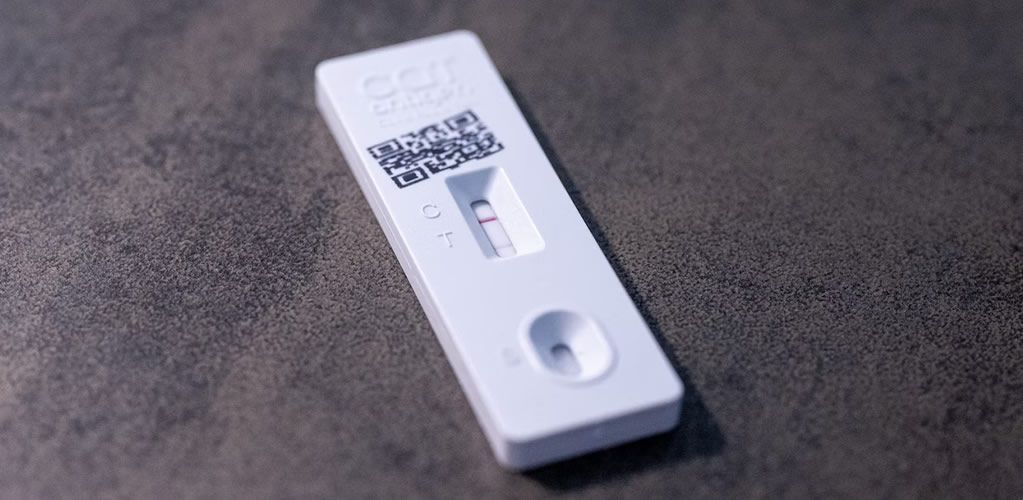Why a faint line on a COVID-19 test does not necessarily mean that you are no longer infectious
Rapid antigen and lateral flow tests are powerful tools, and it is important to recognize that even a faint line on a test should be interpreted as a positive result.

Rapid antigen and lateral flow tests are powerful tools, and it is important to recognize that even a faint line on a test should be interpreted as a positive result.
I t is clear that the body’s immune system plays a crucial role in our ability to fight off SARS-CoV-2. According to Dr Michael Mina, Epidemiologist, Immunologist, Physician, and Chief Medical Officer at eMed, a rapid test that is clearly positive with a dark line showing up almost immediately indicates “a failure of the immune system”. This “blazing positive” result essentially means that the body is allowing the virus to get out of control.
It means that the virus has been allowed to run rampant in the body.
Fortunately, as the pandemic continues and more people receive multiple vaccinations and become infected at least once, our immune systems are learning to respond more quickly to the virus. This can lead to shorter illnesses and, in some cases, no positive tests at all.
Dr Shane Crotty, Professor of Immunology in the Center for Infectious Disease and Vaccine Research at La Jolla Institute for Immunology, suggests that people should expect to see more faintly positive results, followed shortly by negative tests as the body quickly clears the virus. Instead of taking up to 10 days to catch up to the virus, the body is already ahead of it.

People should expect to see more faintly positive results. | CREDIT: UNSPLASH/NILS
Additionally, people may experience symptoms sooner after an exposure than they did earlier in the pandemic, as this is a sign that the immune system is fighting back. The body now has the advantage over the virus.
“You might have to squint a little harder at your antigen tests,” Dr Crotty says. “It’s not going to be this crazy bright band that shows up in 30 seconds, which is a sign that there’s massive amounts of virus in your body. And, big picture, that’s largely a good thing.”
Dr Mina agrees that if you have a pair of negative at-home tests, you can feel confident that you are no longer contagious. Studies have shown that, with the variants we have seen so far, antigen test results are a reliable indicator of whether or not you are able to transmit the virus.
A positive result on a test means you are almost certainly infectious, while a negative result does not mean you are definitely not contagious.

Whether bright or faint line, a positive result on a test means you are almost certainly infectious. | CREDIT: UNSPLASH/MEDAKIT LTD
It is also imperative to regard five days from the onset of symptoms, or a positive test result, as the absolute minimum for any individual (as per many countries’ COVID guidance). This is because some people may remain infectious even after this time period has elapsed.
It is important to be aware of the changing dynamics of the virus and to take the necessary precautions to protect oneself and others.

GOING FURTHER:

|

|

|
— AUTHORS —

|
▫ PMP News reporting. |
Sources
▪ Text: This piece was first published in PMP Magazine on 14 January 2023.
▪ Cover: Unsplash/Dimitri Karastelev. (Licensed under a Creative Commons Attribution-ShareAlike 4.0 International License.)






[Read our Comments Guidelines]